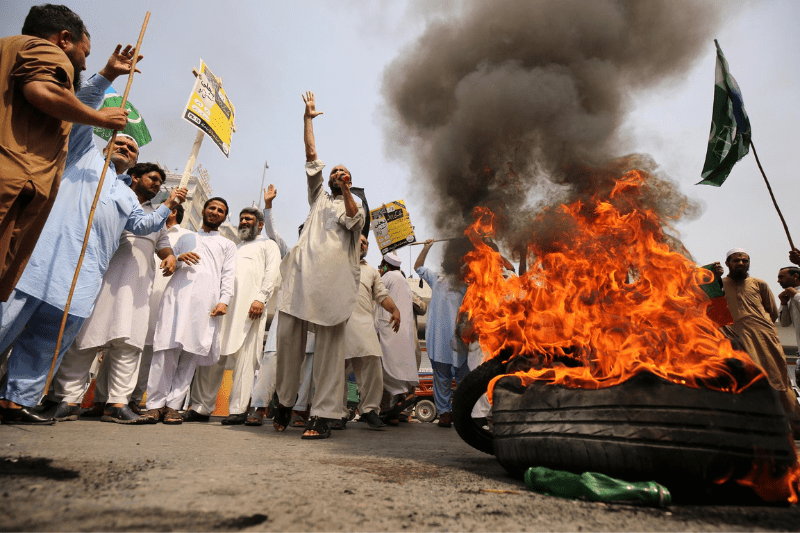
strike in pakistan protest of soaring prices, utility bills
Last updated on September 4th, 2023 at 10:22 am
In protest of rising energy and fuel prices, thousands of Pakistani business owners closed their doors on Saturday, igniting widespread unrest ahead of the country’s elections.
Pakistan’s economy has been crippled for years by mismanagement and instability, and this summer Islamabad was pressured into a deal with the International Monetary Fund (IMF) to avoid default.
The global lender demanded, however, that well-liked subsidies that served as a cost-of-living buffer be reduced. The cost of petrol and electricity has skyrocketed.
On Saturday, there were widespread market closures in Lahore, Karachi, and Peshawar. Placards protesting “the unreasonable increase in electricity bills and taxes” were placed in abandoned bazaars.
Keep Reading
According to Ajmal Hashmi, president of the Township Traders Union in Lahore, “everyone is participating because the situation has now become intolerable.”
There needs to be some relief so that people can put food on the table.
In Pakistan, traders have enormous sway, and with elections looming in the near future, the government faces the challenging task of keeping them on board while adhering to IMF austerity measures.
Pakistan has historically been constrained by persistently low tax receipts, including from traders, which have led to the accumulation of significant foreign debts that are difficult to pay off.
The IMF wants to put an end to the bailout cycle that has supported the economy for years.
Growing disconnectedness:
Anwaar-ul-Haq Kakar, the acting prime minister, claimed on Friday that there is no “second option” and citizens will have to pay inflated bills.




